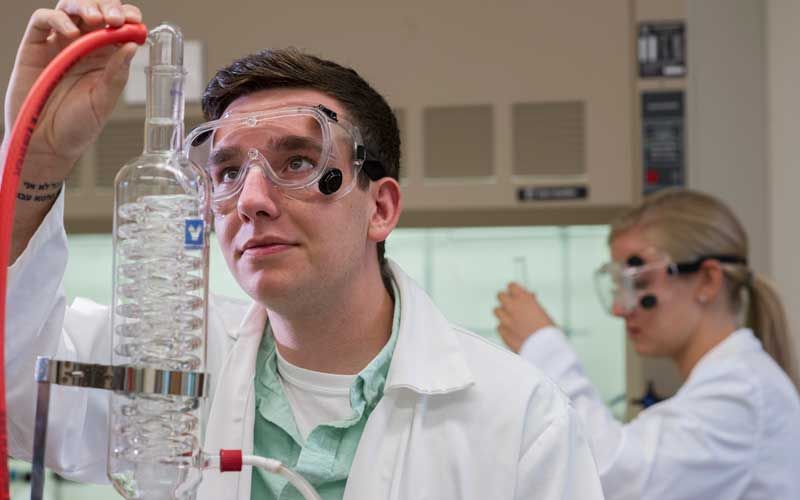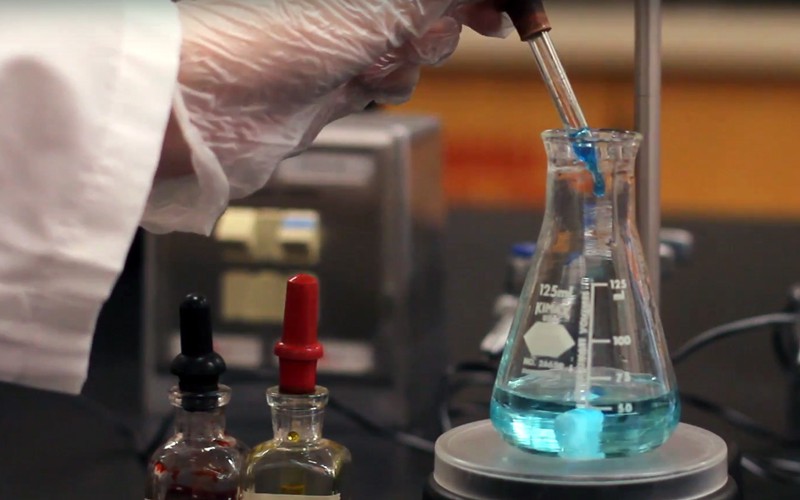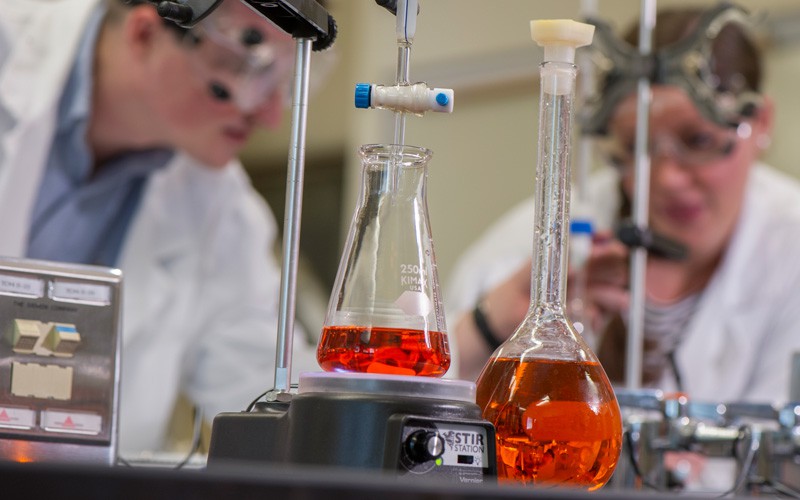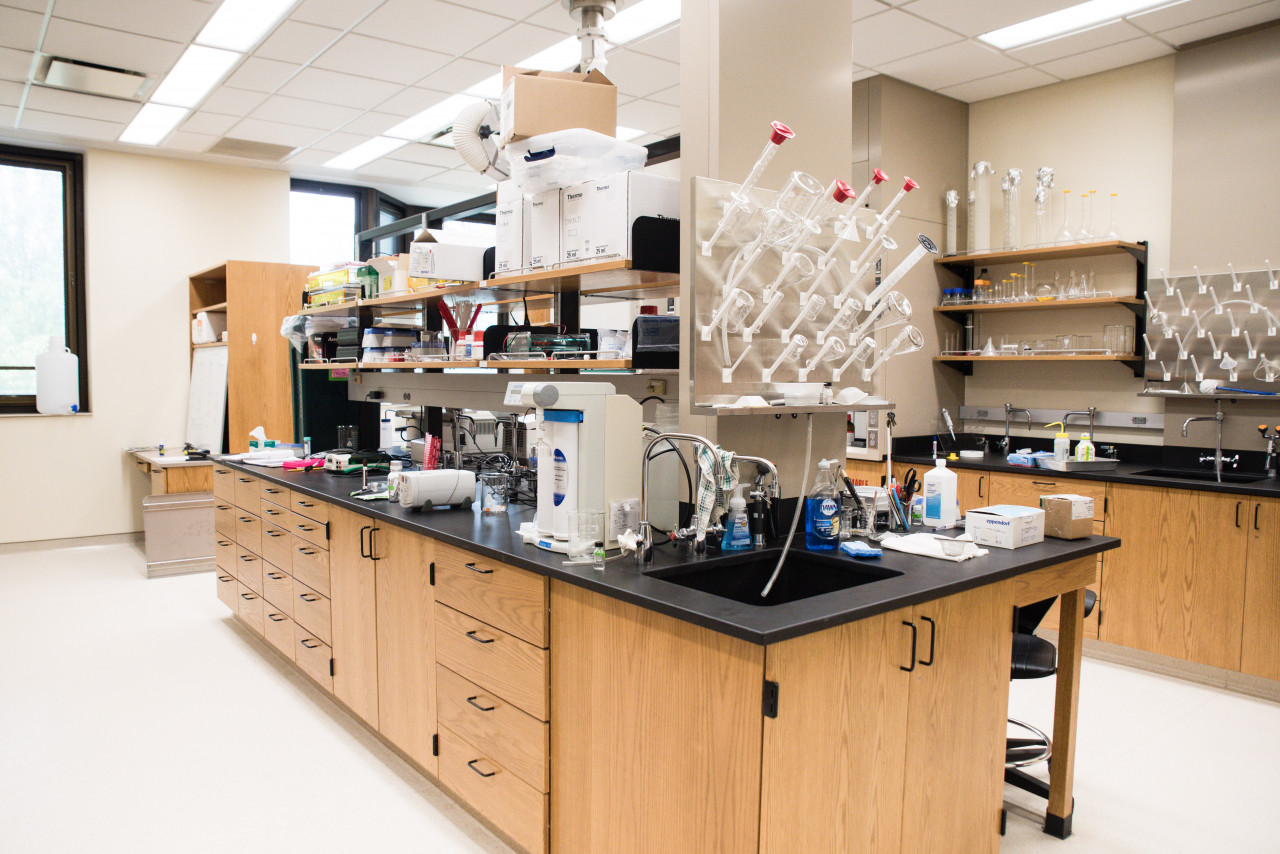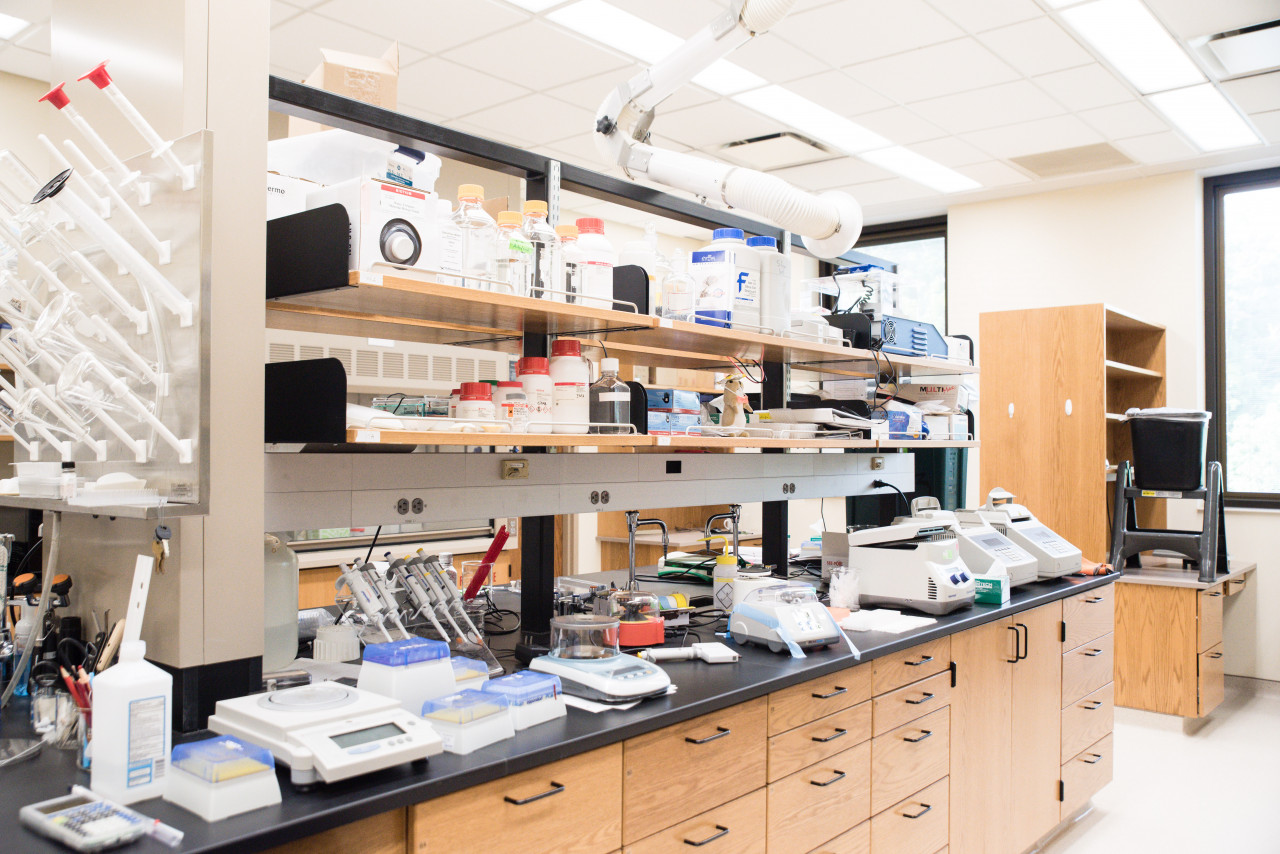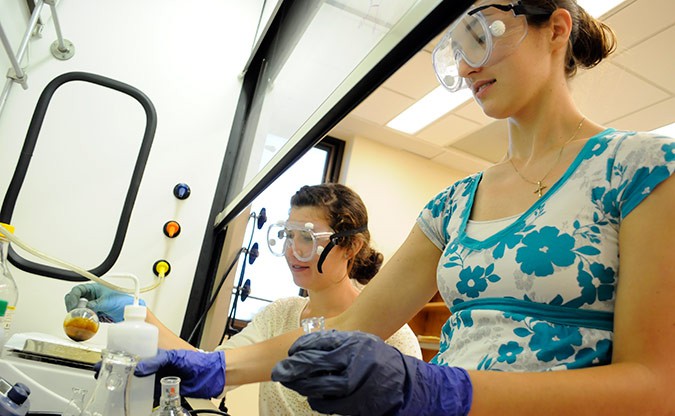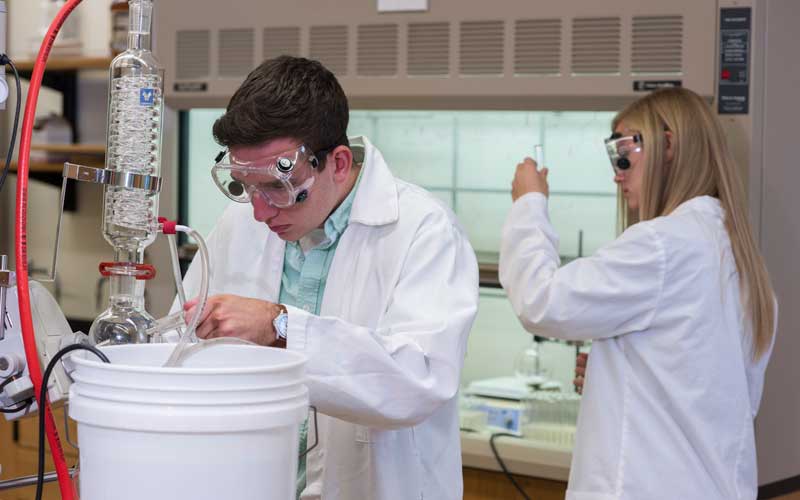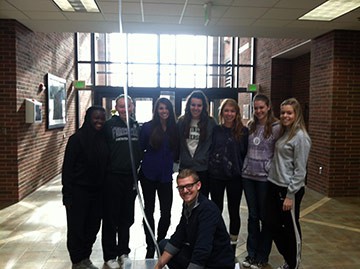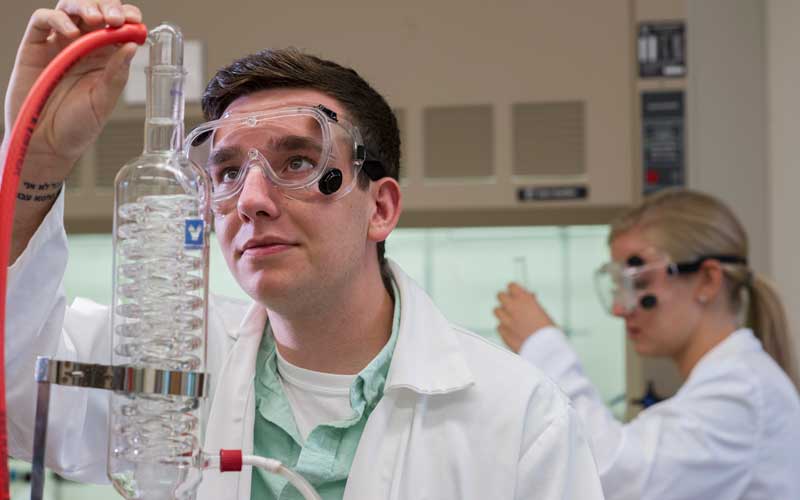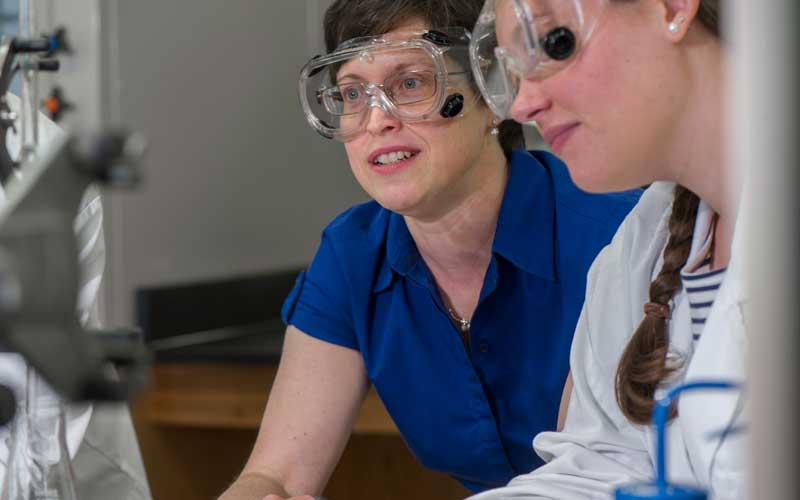Chemistry Majors & Minors
To truly breathe life into science, you need to experience what you are studying in an up-close and personal way. That’s why practical learning is built into our curriculum.
.jpg?h=520&w=695&fit=crop-center)
1. What kinds of equipment does the University own? Who has access to this equipment?
Huntington University students have hands-on access to a wide variety of instruments which represent the major types of instrumentation which they may encounter in industrial and research labs. Students begin using a number of these instruments within the first two years of study, and then go on to become more adept at using all of the instruments in a year of analytical and instrumental chemistry.
2. What is a typical classroom/lab like in terms of lecture time, experimentation, difficulty of work, and so on?
Our classes are comfortably small; freshman chemistry normally averages about 30 students, inclluding those in related majors. Organic chemistry in the second year is typically fewer than 15 students. We have three hours (50 minute class sessions) of lecture per week and one 3-hour laboratory. Classes are designed to provide students with an excellent background for research, further study, the Medical College Admission Test, and the Graduate Record Exam. Out-of-class assistance is readily available from the instructor as well as upper-level students.
3. How does the University assist students with finding opportunities for internships, jobs, etc.?
All chemistry majors working toward what Huntington calls a BS in chemistry (the pre-professional track) do an undergraduate research project, generally the summer before their senior year. This is usually an excellent experience and can potentially lead to a first job although many of our graduates go on to medical or graduate school. The Enterprise Resource Center readily assists our students in finding industrial internships. Over the years we have also had many students enjoy the benefits of paid summer research projects of various types, in medical research facilities, at other universities, and on campus. These positions often help students decide on a job, a medical school, or further graduate study.
4. How big is the Chemistry program?
The program is small in numbers but not in course offerings. We typically graduate two to five chemistry majors a year, a number which allows for small class sizes and student-faculty mentoring opportunities. Compared to our student body at Huntington, the chemistry major percentage is about average for liberal arts colleges. The interests of our current chemistry majors include the health professions, graduate work for research careers, industrial careers, and teaching.
5. What should I do if I am considering coming to Huntington University?
We hope you will consider a trip to Huntington and plan to spend enough time to visit some classes, stay overnight in the dorms and be with the students in more casual settings. What we find is that students who do this can pretty quickly discern whether Huntington is a place for them or not. Wherever you think you will end up, spend enough time on campus (at least one overnight) to get the sense of the place. Please contact any of us with your questions.
Why Choose HU?

Cost of Attendance
Huntington University is dedicated to providing several paths for financial assistance as you invest in your education and future. Each student’s financial aid package is unique and complements our competitive tuition. Online tools are available to help you calculate your investment.
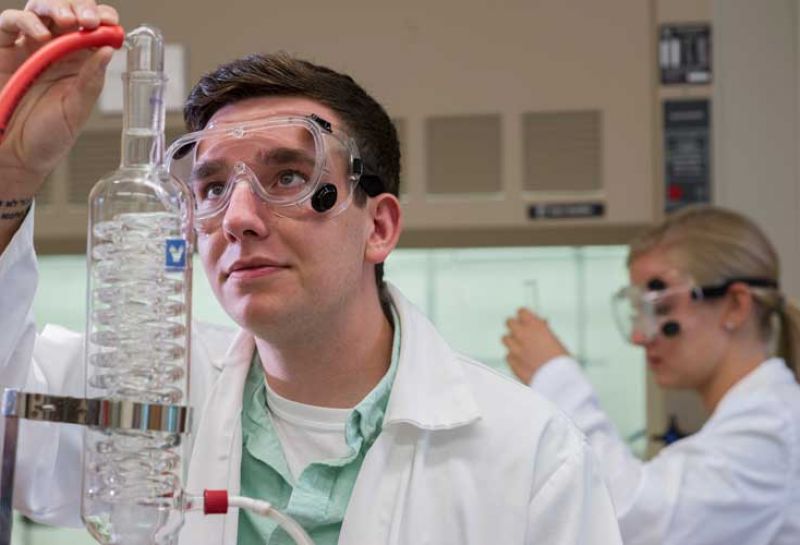
Christ-Centered Focus
In addition to providing you with a nationally-recognized education, we aim to help you experience the cross-section between faith and education. Discover who God wants you to be alongside a close-knit, Christ-centered community. When you’re at HU, you’re home.

